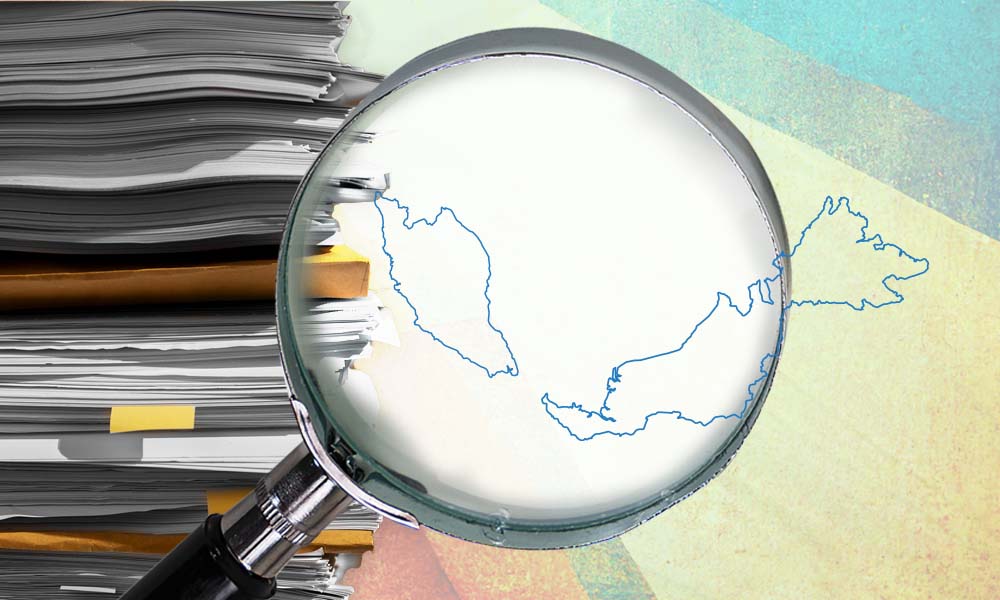
Policy Ideas No. 80 –
Fiscal Responsibility During Political Transitions: the use of the Vote on Account in Malaysia
Authors: Alissa Marianne Rode
This paper examines and compares the conventions and practices of vote-on-account in other Westminster-style parliamentary democracies, particularly the United Kingdom, India, Sri Lanka, and Malaysia. New Zealand’s imprest mechanism, a later innovation in transitional provisions, is also compared to consider how accountability and continuity should be balanced. The paper also suggests a few recommendations to improve accountability for the vote on account.
Kertas ini meneliti dan membandingkan kelaziman dan amalan peruntukan masuk akaun di negara demokrasi berparlimen Westminster lain terutamanya United Kingdom, India, Sri Lanka, dan Malaysia. Mekanisme imprest New Zealand, inovasi terkemudian dalam peruntukan peralihan kerajaan, juga dibandingkan untuk mempertimbangkan bagaimana kebertanggungjawaban dan kesinambungan perlu diseimbangkan. Kertas ini turut mengutarakan beberapa cadangan untuk meningkatkan kebertanggungjawaban peruntukan masuk akaun.

Brief IDEAS No. 42 –
Malaysia Open Budget Index 2024
Authors: Nischal Ranjinath Muniandy and Alissa Marianne Rode
The Malaysia Open Budget Initiative (MyOBI) is a report that provides an assessment of budget transparency and oversight in all Malaysian state governments. It is an IDEAS initiative to create greater demand for accountability at the state level by ensuring that the public and civil society is better equipped to push for greater transparency and accountability at the state government level, with mechanisms in place that encourage public participation in the budget process. Citizens must be participants, not just spectators, and we hope that the MyOBI can be a tool in this endeavour.
The current results indicate that state governments can do more to ensure that key budget documents are made available to the public and to strengthen the oversight capacity by the state legislative assemblies. In addition, state governments should do more to create mechanisms to enable the public to meaningfully participate in the budget process. Several reform actions have been identified that can be undertaken to improve budget transparency, strengthen oversight by the state legislative assembly, and provide mechanisms for meaningful public participation.
Indeks Belanjawan Terbuka Malaysia (MyOBI) adalah satu laporan yang menilai ketelusan dan proses pemantauan belanjawan untuk semua kerajaan negeri di Malaysia. Inisiatif ini dilakukan untuk mewujudkan permintaan yang lebih besar terhadap akauntabiliti di peringkat negeri. Inisiatif ini akan memastikan orang awam dan masyarakat sivil lebih bersedia untuk mendesak ketelusan dan akauntabiliti yang lebih besar di peringkat kerajaan negeri, dengan mekanisme yang ada untuk menggalakkan penglibatan awam dalam proses belanjawan. Warganegara mesti terlibat sama dalam proses belanjawan, bukan sekadar menjadi penonton, dan kami berharap MyOBI dapat menjadi alat dalam usaha ini.
Hasil semasa menunjukkan bahawa lebih banyak usaha oleh dilakukan oleh kerajaan negeri untuk memastikan dokumen belanjawan utama disediakan kepada orang awam dan untuk memperkukuh kapasiti pemantauan oleh Dewan Undangan Negeri (DUN). Selain itu, lebih banyak usaha juga perlu dilakukan untuk mewujudkan mekanisme yang membolehkan orang awam menyertai proses belanjawan dengan bermakna. Beberapa tindakan pembaharuan telah dikenal pasti yang boleh diambil untuk meningkatkan ketelusan belanjawan, memperkukuhkan pemantauan oleh DUN, dan menyediakan mekanisme untuk penglibatan awam yang bermakna.

Polisi Ringkas No. 35 -
Ketelusan Belanjawan Di Negeri-negeri Malaysia: Dapatan Utama Indeks Belanjawan Terbuka Malaysia - MYOBI 2022
Authors: Sri Murniati Yusuf, Alissa Rode dan Muhammad Arieff Najmuddin
MyOBI ialah inisiatif IDEAS untuk mewujudkan satu desakan yang lebih besar mengenai kebertanggungjawaban di peringkat negeri. Indeks ini ialah sebahagian daripada respons kami terhadap suatu peluang demokrasi yang diwujudkan oleh keputusan pilihan raya tahun 2018 dan perubahan kerajaan yang berikutnya. Kami percaya bahawa pembukaan ruang sivik ini akan menjadi lebih bermakna jika masyarakat sivil dan khalayak ramai lebih berpengetahuan dan dilengkapi kemahiran yang diperlukan untuk menyertai proses demokrasi. Pandemik juga telah memperkukuhkan keperluan bagi satu kerajaan yang lebih telus dan bertanggungjawab dan membuka peluang yang lebih luas untuk menggunakan internet sebagai satu cara untuk mencapai matlamat ini.
Keputusan secara keseluruhan menunjukkan bahawa sesetengah kerajaan negeri di Malaysia tidak mendedahkan maklumat belanjawan yang mencukupi kepada khalayak ramai dan tahap pengawasan oleh Dewan Undangan Negeri terhadap belanjawan adalah tidak mencukupi, terutamanya semasa proses perumusan (tumpuan kajian ini). Indeks ini membantu untuk mengenal pasti beberapa tindakan pembaharuan paling mudah yang dapat diambil oleh kerajaan negeri dan Dewan Undangan Negeri untuk menambah baik ketelusan dan pengawasan belanjawan. Laporan ini membincangkan dapatan keseluruhan kajian ini serta tindakan-tindakan pembaharuan yang boleh diambil.
Layari laman web Pantau Wang kita untuk mengetahui tentang index ini dengan lebih lanjut.

Policy Paper No 77 -
Pantau Laksana: Assessing Malaysia’s Transparency and Accountability Initiatives in Implementing Emergency Fiscal Responses
Authors: Sri Murniati Yusuf, Alissa Rode and Zhen Ting Low
Pantau Laksana: Assessing Malaysia’s Transparency and Accountability Initiatives in Implementing Emergency Fiscal Responses is a report that discusses the sources of funds, funds allocation, beneficiaries, and reporting of the nine economic stimulus packages (ESPs) rolled out by three successive governments during the COVID-19 pandemic from 27 February 2020 to 28 June 2021.
The nine ESPs were announced in response to the impact of COVID-19 restrictions on businesses, employment, and the supply chain, in order to cushion the impact of COVID-19 and to assist in economic recovery. Similar to many countries, Malaysia faced a tradeoff between efficiency and oversight in this unprecedented crisis. Due to the exigency, direct expenditures by the government in most of the packages were only retrospectively approved by the Parliament in August and December 2020. While much effort was invested in ensuring programmes were communicated to the public, reporting gaps remain in the sources of funding and fiscal impact of the measures announced.
IDEAS calls for more parties to continue requesting information about major programmes under the ESPs, and recommends the government that emergency bypass measures be restricted to immediate crisis relief.
The report is also a part of the IDEAS Pantau Laksana initiative, where IDEAS created a dataset that consolidates the data from the announcements and implementations of the ESPs. For more details, please visit pantauwangkita.com/pantau-laksana.

Brief IDEAS No. 35 -
Budget Transparency in Malaysian States: Key Findings of Malaysia’s Open Budget Index (MyOBI) 2022
Author: Sri Murniati Yusuf, Alissa Marianne Rode, and Muhammad Arieff Najmuddin Mohd Mohtar
MyOBI is an IDEAS initiative to create greater demand for accountability at the state level. The index is part of our response to a democratic opening created by the 2018 election result and subsequent change of government. IDEAS believe that the opening of civic space will be more meaningful if civil society and the public are more well-informed and equipped to participate in the democratic process. The pandemic has also strengthened the need for a more transparent and accountable government and opened wider opportunities to use the internet as a way to achieve this.
The overall results indicate that some state governments in Malaysia have not disclosed adequate budget information to the public and the level of oversight by the state assembly on budget is not sufficient, especially during the formulation process (which this study focuses on). The index helps identify several low-hanging fruit reform actions that can be taken by state governments and state assemblies to improve budget transparency and oversight. This report discusses the overall findings of this study as well as these reform actions.
Visit Pantau Wang kita website to find more about this index.

Public Procurement and Bumiputera Company Development in the Construction Industry: Reviewing Policies, Exploring Possibilities
Author: Lee Hwok Aun
Malaysia’s efforts to develop Bumiputera companies through public procurement policy hold out potentialities and pitfalls. The construction sector has been a major focus of Bumiputera development policies, and continues to offer upward mobility opportunities especially for technical and vocational education and training (TVET) graduates. The approach, with reservation of G1 contracts – the smallest out of seven grades – exclusively for Bumiputera contractors, and quotas and price preferences for medium to large contracts, stands out globally for its form and magnitude. These core elements have remained quite constant for four decades, but special initiatives, such as the Mass Rapid Transit’s (MRT) ‘carve out and compete’ and young entrepreneurship programme, and a 2019 introduction of time limits on G1 contractor licenses, have occasionally emerged.
This report presents an overview and update of pro-Bumiputera policies within public procurement, and the findings and implications of an original research project undertaken in April-August 2021. The research set out to survey and assess the distribution and characteristics of Bumiputera contractors, to investigate the effects of public procurement on Bumiputera company development, to evaluate the policy and make some recommendations moving forward.

Brief IDEAS No. 31
The government’s policy commitments on State-owned enterprises (SOEs) in the National Anti-Corruption Plan (NACP) and the Shared Prosperity Vision (SPV) 2030
Author: Nur Zulaikha Azmi
- The two current major policy programmes, the 2019 National Anti-Corruption Plan and Shared Prosperity Vision 2030 (SPV2030), include specific commitments to reform and a redefinition of SOEs role in the economy. This paper describes specific commitments in those two major policy documents to achieve those objectives.
- The SPV2030 envisions the SOEs to play a greater role as an investor in key growth areas and a more proactive role in ensuring equitable development outcomes for Bumiputera.
- The NACP’s objective is to address the issues on SOE governance, especially to combat corruption and improve transparency, address political interference and ensure efficient use of government resources by the SOEs.

Reforming the Appointment Process
of Directors in GLICs, GLCs and Commercially-Related Statute Bodies
Author: Ahmad Fikri Ahmad Fisal
Government-linked investment companies (GLICs) and government-linked companies (GLCs) have a large presence in the Malaysian economy. A study published by the Institute for Democracy and Economic Affairs (IDEAS) estimated that the seven GLICs collectively owned at least 42% of total market capitalisation amongst listed firms in Bursa Malaysia and have a minority interest in at least 68,000 companies (Gomez et al., 2018).
The large presence of GLICs and GLCs in the domestic economy raised concerns over the quality and transparency of their directorial appointments. This particular issue gained greater attention following the exposure of the 1Malaysia Development Berhad (1MDB) scandal. 1MDB was formed in 2009 a few months after Datuk Seri Najib Razak became Prime Minister and was put under the ownership of Minister of Finance Incorporated (MoF Inc.), one of the seven GLICs. In a few years 1MDB became involved with several large-scale projects, such as Bandar Malaysia, and has raised billions of US dollars through multiple bond issuances.

Removal or Reform:
Charting the Way Forward for Malaysia’s Constituency
Development Funds (Peruntukan Ahli Parlimen dan ADUN)
The paper starts by providing a brief overview of CDF practices in other countries. From this overview, the paper draws three main lessons. Firstly, CDF has the potential to address urgent development needs and gaps between constituencies. But its effectiveness can be marred by a lack of transparency and accountability mechanisms. Secondly, CDF violates the separation of power between executives and the legislature and risks diluting the democratic process with patronage politics. Thirdly, CDF distorts political competition because it provides the elected representatives of the ruling party with better tools to influence voters’ choices.
With an understanding of the global practice, the paper examines how Malaysia manages its CDF. With the limited publicly available information, the paper attempts to outline the source of financing for CDF allocation to lawmakers at the state and federal levels, the purpose and distribution, the rules and process of disbursement, and the monitoring and oversight mechanisms.